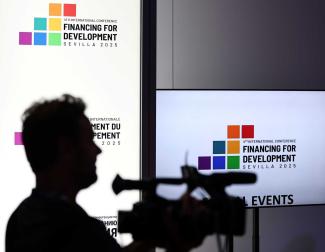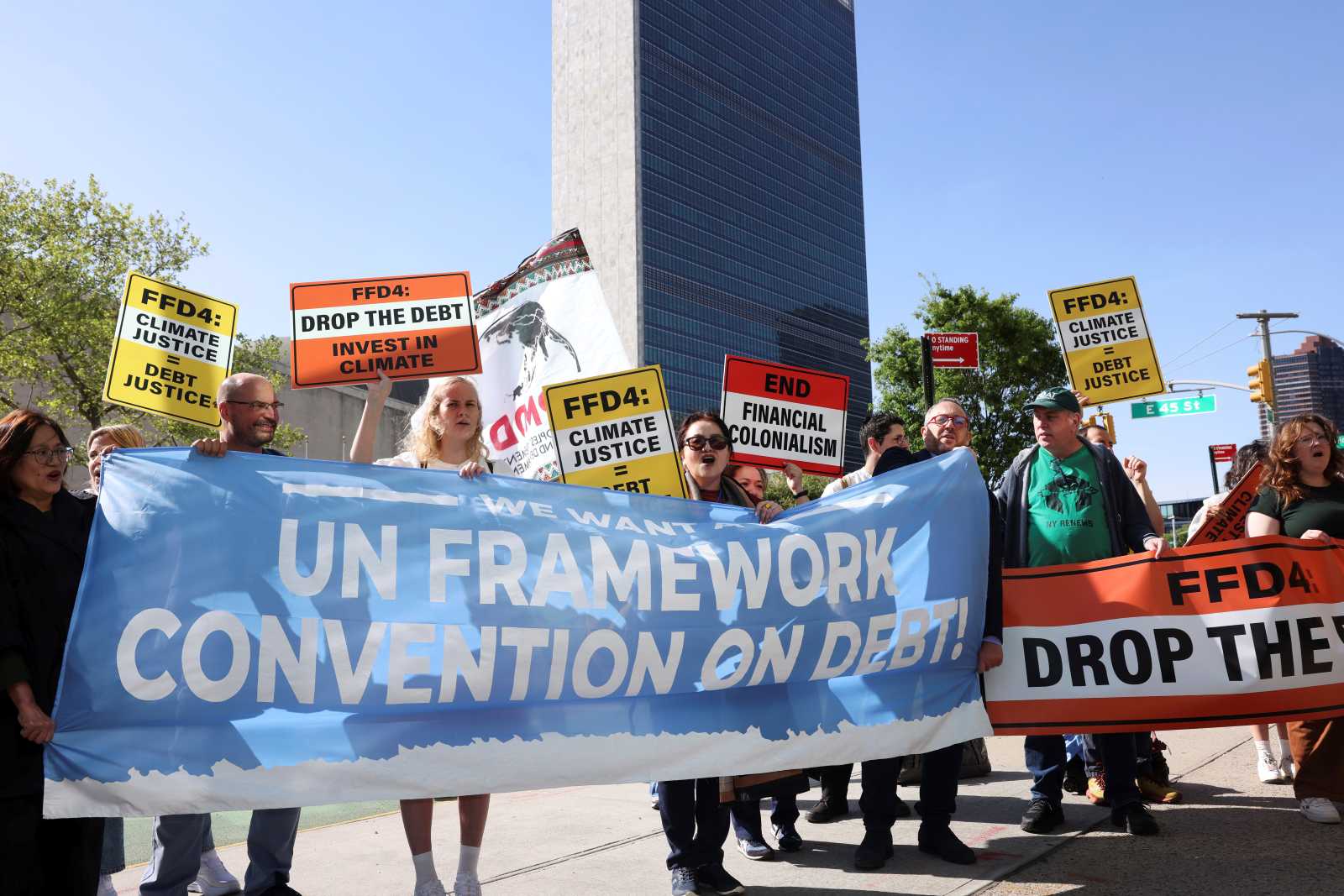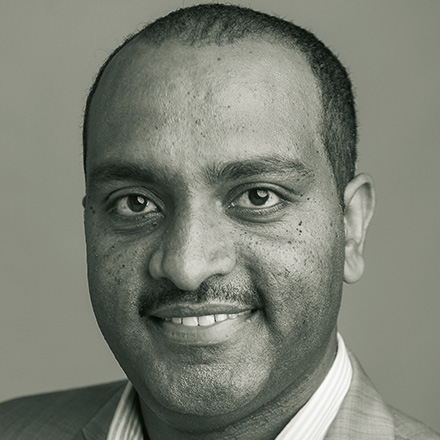Global finance
How to overhaul the global financial architecture

When government representatives and financial experts from around the world gather for the fourth International Conference on Financing for Development (FfD4) this week, they are aiming high: According to the conference website, the meeting offers a “unique opportunity to reform financing at all levels,” including the international financial architecture, and to address the financing gap for reaching the SDGs. While most experts agree that reform is necessary, the task is huge.
In a report published in 2024, civil-society members, especially from the Global South, make tangible proposals for reform. The publication “Building new foundations: Reimagining the International Financial Architecture” was published by the Global Policy Forum Europe, an international civil-society organisation specialising in the analysis of UN policies and global governance.
The contributors to this publication argue that the international financial system is rigged against developing nations, perpetuating cycles of debt and poverty. As such it is ill-equipped to handle today’s interconnected crises. They suggest improvements to key areas within international financial architecture (IFA), including debt restructuring mechanisms, the International Monetary Fund’s Special Drawing Rights, the treatment of risk premiums, and global tax cooperation. Let’s take a closer look at some of their proposals for creating a fairer, more sustainable global financial system.
Rethinking debt: a blueprint for fairer solutions
The global debt crisis disproportionately affects developing countries. Maria Ron Balsera, Maria Emilia Mamberti and Matthew Forgette from the Center for Economic and Social Rights in New York argue that debt restructuring measures haven’t been effective so far. This is partly due to a fragmented and opaque legal framework that favours creditors over vulnerable nations.
In response, they propose to set up an independent statutory debt restructuring mechanism under the auspices of the United Nations. The UN is considered an impartial intermediary as it is neither a creditor nor a representative of its own interests. The organisation should oversee the debt restructuring process, incorporating soft law principles such as transparency, equal treatment and sovereignty. For instance, the authors argue that governments should be able to prioritise social expenditure over debt servicing. They also demand a neutral credit assessment mechanism. “Vulture funds” should no longer be permitted to exploit debt crises for profit.
On the national level, the authors suggest to connect debt restructuring with fiscal justice. They emphasise that governments need to invest in tackling poverty and inequality and to expand fiscal space through progressive taxation and eliminating tax abuse.
Special Drawing Rights: a debt-free path to development
Created by the International Monetary Fund (IMF) as international reserve assets, Special Drawing Rights (SDRs) supplement member states’ official reserves and come without repayment obligations or conditions, making them a unique financing tool.
According to Patricia Miranda of the Latin American Network for Economic and Social Justice (LATINDADD), regular SDR allocations over the next five years, prioritised for countries facing acute economic, social and climate vulnerabilities, could have a profound impact on millions of lives. However, the current quota-based distribution of SDRs is inequitable and favours wealthier nations. She therefore suggests using a vulnerability ratio to prioritise countries in need instead. This approach would ensure that more liquidity reaches countries that need it most. Furthermore, reallocating unused SDRs from developed countries to developing nations as grants, rather than loans, would uphold the debt-free ethos of SDRs.
The author points out that transferring about a quarter of the SDRs held by rich countries would be enough to repay all debt owed to the IMF. She also provides examples of how countries like Argentina, Ecuador and Paraguay have already used SDRs for fiscal purposes. Her key argument is that a fairer distribution of SDRs, based on countries’ actual needs, could transform global financing and empower developing countries to address economic and climate challenges without increasing their debt.
Reforming risk premiums
Under the current financial rules, particularly the Basel Accords on banking regulation and supervision, risk premiums are treated as the lender’s property rather than the borrower’s. This means that, even as a borrower repays a loan and the associated risk decreases, they continue to pay inflated rates. The result is a system that disproportionately burdens economically weaker nations while rewarding lenders who assume that bailouts will cover their reckless lending.
Oliver Pahnecke of Middlesex University in London and Juan Pablo Bohoslavsky of Argentina’s National Scientific and Technical Research Council (CONICET) propose a bold solution: risk premiums should be reclassified as collateral that is returned or adjusted over time. This reform would make borrowing more affordable, lower the risk of default and create a fairer global financial system. Aligning risk premiums with real financial conditions could help countries escape unsustainable debt cycles and ensure that lending supports, rather than hinders, economic development.
A fairer global tax system
Developing countries have long struggled for a seat at the table in global tax negotiations. Now, a push for a UN-led Framework Convention on International Tax Cooperation, championed by the Africa Group, seeks to level the playing field and ensure that tax policies are fair, transparent and responsive to the needs of all nations.
The proposed UN convention seeks to establish truly inclusive international tax cooperation, ensuring that all countries – not just the richest – can shape global tax rules. The initiative also targets major challenges like illicit financial flows, tax avoidance and the taxation of the digital economy, all of which disproportionately impact lower-income nations.
The main objective is to create a governance system that enhances the legitimacy, fairness and resilience of international tax policies. According to Chenai Mukumba of the Tax Justice Network Africa, meaningful progress has already been made. The UN General Assembly has approved the terms of reference for a UN framework convention on international tax cooperation and has established an intergovernmental committee to draft the framework convention and two initial protocols. Mukumba states that, if successful, this UN-led initiative could transform global tax cooperation.
Fixing a broken system and regaining trust
A new push for reform is calling for more democratic governance of International Financial Institutions (IFIs) including the World Bank and the IMF. The aim is to move away from a system where wealthy nations hold disproportionate power.
Daniel Kostzer, an economist at the International Trade Union Confederation (ITUC), suggests shifting from project-based aid to national programmes to ensure that funding aligns with country priorities. He also proposes sustainable debt management under UN principles, transforming the IMF into a lender of last resort and the World Bank into a development fund.
Another idea is to secure new sources of funding for IFIs, including a redesigned global tax system. For example, a Financial Transaction Tax (FTT) – a global tax on financial trades – could provide long-term, independent funding. This would enable IFIs to obtain funds independently of donor-driven agendas. The result would be a fairer, more inclusive system that works for all nations.
Ohiocheoya (Ohio) Omiunu and Chioneso Samantha Kanoyangwa of the African Sovereign Debt Justice Network also call for major structural reforms of the IMF. They argue that the institution’s resistance to meaningful reforms has led to a decline in its social legitimacy. The IMF’s “weighted voting system” disproportionately favours the US and other major economies, they argue, while Africa remains significantly underrepresented. This imbalance, combined with the IMF’s reliance on austerity-driven policies, has fuelled scepticism, particularly in the Global South, where these measures often exacerbate economic hardship. The Fund’s “creditor-first approach to debt restructuring” and its Debt Sustainability Assessment (DSA) framework have also drawn criticism.
The authors’ key argument is: Without meaningful change, the IMF risks further eroding its standing as a trusted international financial institution. They therefore call for a “more equitable power distribution, a shift from austerity-based policies and a reformed debt resolution process under a more inclusive global framework.”
Link
Global Policy Forum Europe, 2024: Building new foundations: Reimagining the International Financial Architecture.
Roli Mahajan is a journalist based in Lucknow, India.
roli.mahajan@gmail.com















